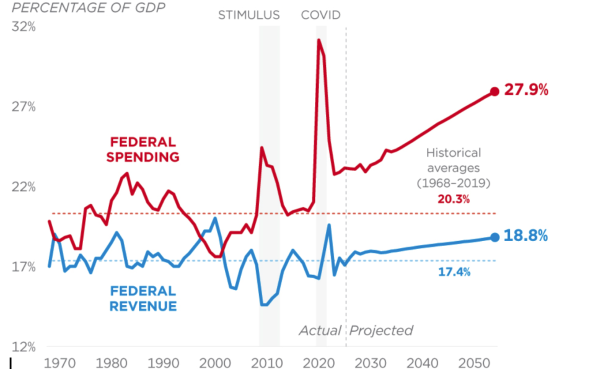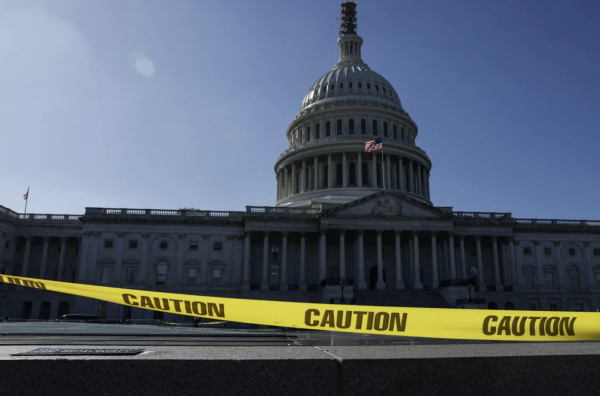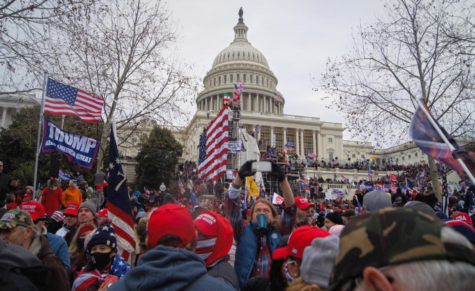Grammys, Golden Globes reach new heights of politicization
On Jan. 7, actors and actresses appeared in all black at the 2018 Golden Globes awards in solidarity with the Time’s Up movement for victims of sexual assault. In her acceptance of the Cecil B. DeMille award, entertainment icon Oprah Winfrey delivered a speech about sexual abuse that brought the audience to its feet. Twenty-one days later, musicians and other attendees of the 60th Grammy Awards donned white roses as another tribute to the victims of sexual assault. In the wake of her 2014 sexual assault lawsuit against Dr. Luke and the recent “Me Too” movement, Kesha performed her song “Praying” with a group of female artists. The group, which included Julia Michaels, Camila Cabello, Bebe Rexha, Cyndi Lauper, Andra Day, and the Resistance Revival Chorus, appeared in all white as a sign of unity.
Though the Time’s Up movement dominated the Golden Globes and the Grammys, it was not the only political issue to take the spotlight. During Kendrick Lamar’s opening performance of “XXX,” “DNA,” and “King’s Dead” from his album DAMN, figures clad in military garb marched behind a background of the waving American flag. A few minutes later, figures in red lined the stage and fell as gunshot sounds rang out, delivering a poignant message about police brutality. In between songs, Dave Chappelle interjected brief commentary: “I just wanted to remind the audience that the only thing more frightening than watching a black man be honest in America is being an honest black man in America.” In addition, after her performance with Kesha, Cabello paid tribute to DREAMers, or children of undocumented immigrants brought to the United States. “I’m a proud Cuban-Mexican immigrant, born in Eastern Havana, standing in front of you on the Grammy stage in New York City, and all I know is, just like dreams, these kids can’t be forgotten and are worth fighting for,” said Cabello.
Nevertheless, according to its Nielsen rating of 5.9, this year’s Grammys had its lowest amount of viewers since 2008, with an average of 19.81 million viewers, an astonishing 24% drop from last year. At the end of the show, a prerecorded skit played onscreen of a mock audition for the best Grammy spoken-word performance of the book Fire and Fury: Inside the Trump White House by Michael Wolff. The skit featured celebrities that included Cher, Cardi B, Snoop Dogg, DJ Khaled, and former presidential candidate Hillary Clinton. This “flippant” political commentary, however, junior Katherine Hennessy believes, has ostracized those with the different opinions and has contributed largely to the show’s historically low viewership.
“They say things about very controversial topics as if everyone should agree with them, and if they don’t, then they’re a bunch of idiots or uncultured heathens,” says Hennessy. “I think the actors in Hollywood are doing a fantastic job if they want Trump to be elected again, because this is exactly the sort of thing that got him elected the first time. People calling other people ‘deplorables’ for how they thought . . . It’s reactionary politics at its finest.”
With the 90th Academy Awards on the horizon, the presence of politics in entertainment has sparked debates over diversity in film. Theatre teacher Kate Morgens is a member of the Screen Actors Guild and American Federation of Television and Radio Artists and has voted for its nominees in the past. According to Morgens, those who choose nominees and winners for any award for art and entertainment have to consider the work’s social implications in addition to traditional forms of evaluation.
“I certainly try to vote for the very best actor, but I can’t help being conscious of the diversity of the actors who are chosen and a message that these choices sends when awards ceremonies are all white and all male,” says Morgens.
Moreover, proponents of the philosophy that politics should influence entertainment believe that since art is a form of self-expression, artists should be able to express all facets of their identity, including those political.
“I think that’s why people love music in general, because you want it to move you in some way, and if it doesn’t, you probably wouldn’t listen to it,” said school Director of Diversity Judy Osborne. “You don’t have to consider politics to be a bad word. I think there is no part of my world that is not politicized in some way. And so, to engage with it through music is socially responsible, and it teaches people how to have civil conversation and how to have a common ground, really, knowing that there are a lot of people on both sides of these political parties that love the same musical artists and love the same music.”
On the other hand, some viewers believe award shows should serve as an escape from the struggles of everyday life and remain apolitical.
“I think that the Oscars are supposed to be part of that escape from the grinding monotony of your own life,” says Hennessy. “And they’re supposed to be, ‘Oh look what wonderful techniques they’re doing, how cool,’ like how Pixar can animate things incredibly. It almost looks real now. It was supposed to be something you would enjoy without having to think about that because [politics are] part of every other aspect of your life.”
Nevertheless, political and social controversy have held a prominent place on ceremony stages throughout history. During the 1973 Oscars, per the request of actor Marlon Brando, Native American activist and actress Sacheen Littlefeather took Brando’s place in his acceptance of Best Actor for the movie The Godfather. Received with a mix of boos and applause, Littlefeather announced to the audience that the actor could not accept his award due to the “treatment of American Indians today by the film industry and on television, on movie reruns, and also in recent happenings at Wounded Knee.”
And over four decades later, the 2016 Oscars introduced the #OscarsSoWhite movement. Stars such as Lupita Nyong’o, George Clooney, Reese Witherspoon, and host Chris Rock attended and spoke out against the underrepresentation of racial minorities in front of and behind the camera, while others like Will Smith and Jada Pinkett Smith boycotted the Academy Awards ceremony altogether in support of the movement. In response, the board of governors of the Academy decided, in a unanimous vote, to double the number of female and racial minority academy members by 2020. Only a year later, the 2017 Oscars saw a record-breaking number of black actors and actresses that won awards, including many members of the Moonlight cast, which won Best Picture.
With the diverse array of nominees for this year’s Oscars, such as Get Out, a thriller centered around race, and Call Me By Your Name, a movie that features a same-sex couple, political controversy on this year’s Academy Award stage feels inevitable. Yet, in spite of the perceived progress that Hollywood has made in representing minorities, some believe that discrimination against certain marginalized groups still affects the movie industry.
“We have women actresses who are so talented, and they are just obviously skipped over because of the power imbalance that exists,” says senior Gia Heery. “It’s not even an intentional thing; it’s just the internalized sexism that most people just have in their daily lives that you don’t realize they have until it’s pointed out.”
Despite Lorde’s nomination for Best Album, the singer reportedly was not invited to perform at the Grammys. Meanwhile, male artists nominated for the same category, Jay-Z, Kendrick Lamar, Bruno Mars, and Childish Gambino, all received invitations to perform their work.
“The thing that kind of made me the most mad was that there were literally no female artists that won big-face Grammys, and the women who did, they weren’t even televised,” says senior Ella Collier. “I think the guys were great too, but it’s kind of weird when it’s all women in this category with Ed Sheeran and he wins singing about a woman’s body.”
But the question that awards show voters like Morgens and audiences across the country grapple with remains: in promoting a more diverse set of artists and musicians, will we sacrifice the quality of art?
“I think people in the seventies and eighties who were fighting for civil rights were much more interested in everyone [being] the same, not ‘We need everyone represented, and we need every specific group to have its day in the sun,’” says Hennessy. “I think it was much more, ‘We want to be treated like everybody else. Not better, not worse.’ I don’t deny that a lot of people have to work a lot harder to get where they are, and they should get a little credit for that, but to assume that they worked harder because of what they looked like is a little strange.”
Representation and quality, however, intersect more than many believe, according to Osborne, and are not mutually exclusive. In addition, the struggle between quality and diversity does not only appear on TV screens, but also in everyday matters of education and employment.
“Scarily enough, what comes to mind is the same thing that larger ‘mainstream’ populations often believe about schools or other workplaces becoming more diverse,” says Osborne. “They say, ‘Oh my gosh, you’re sacrificing your standards when you’re hiring teachers or other people of color…’ That is a complete myth, and what it does is it makes people who are identified as mainstream, or as a majority, or a non-marginalized community, it supports their false notion that what is ‘white,’ for example, is preferred and better.”
And with Georgia’s growing movie industry, debates over inclusion grow ever more personal and even closer to home–the mark of a country with different races, backgrounds, and opinions.






